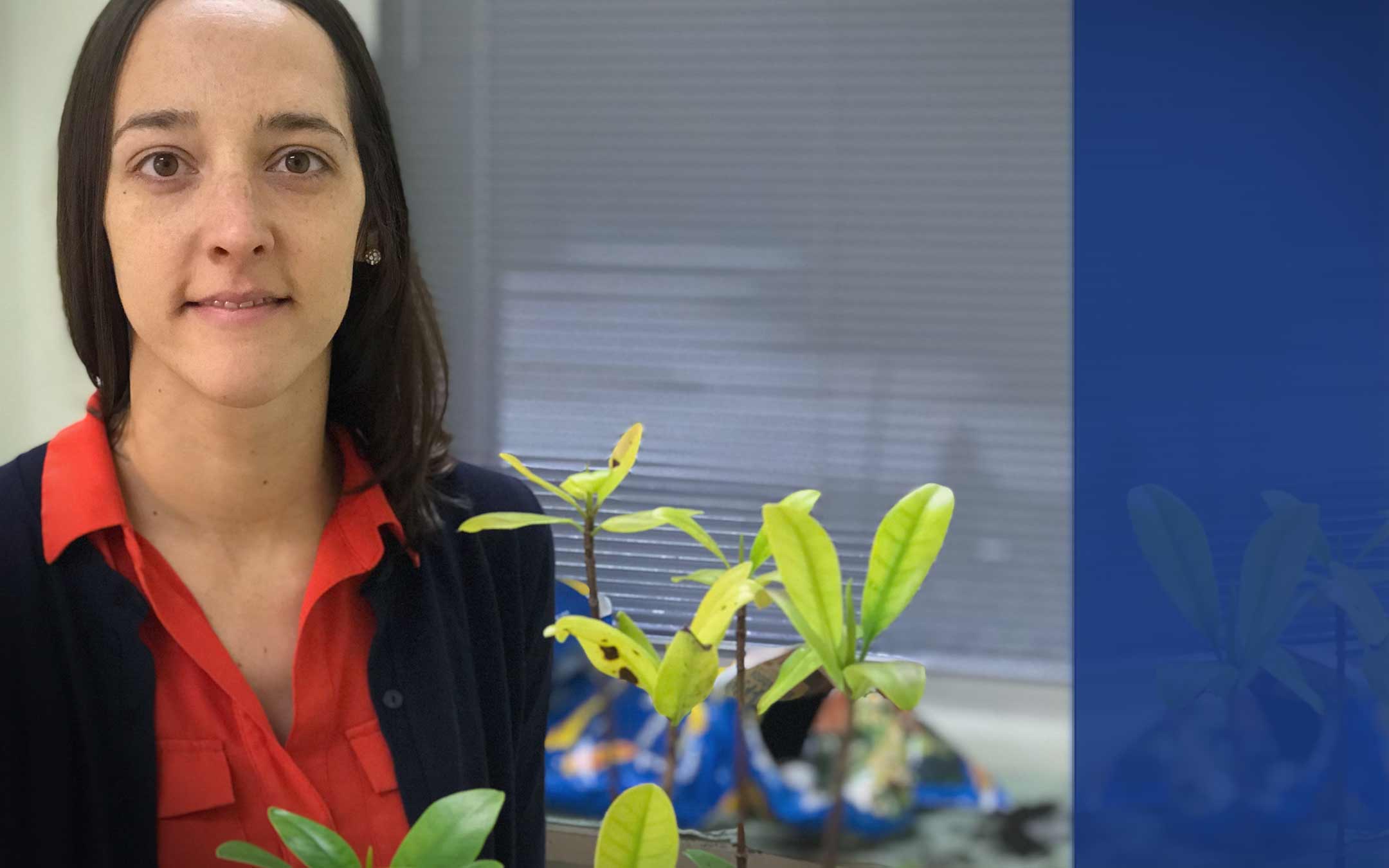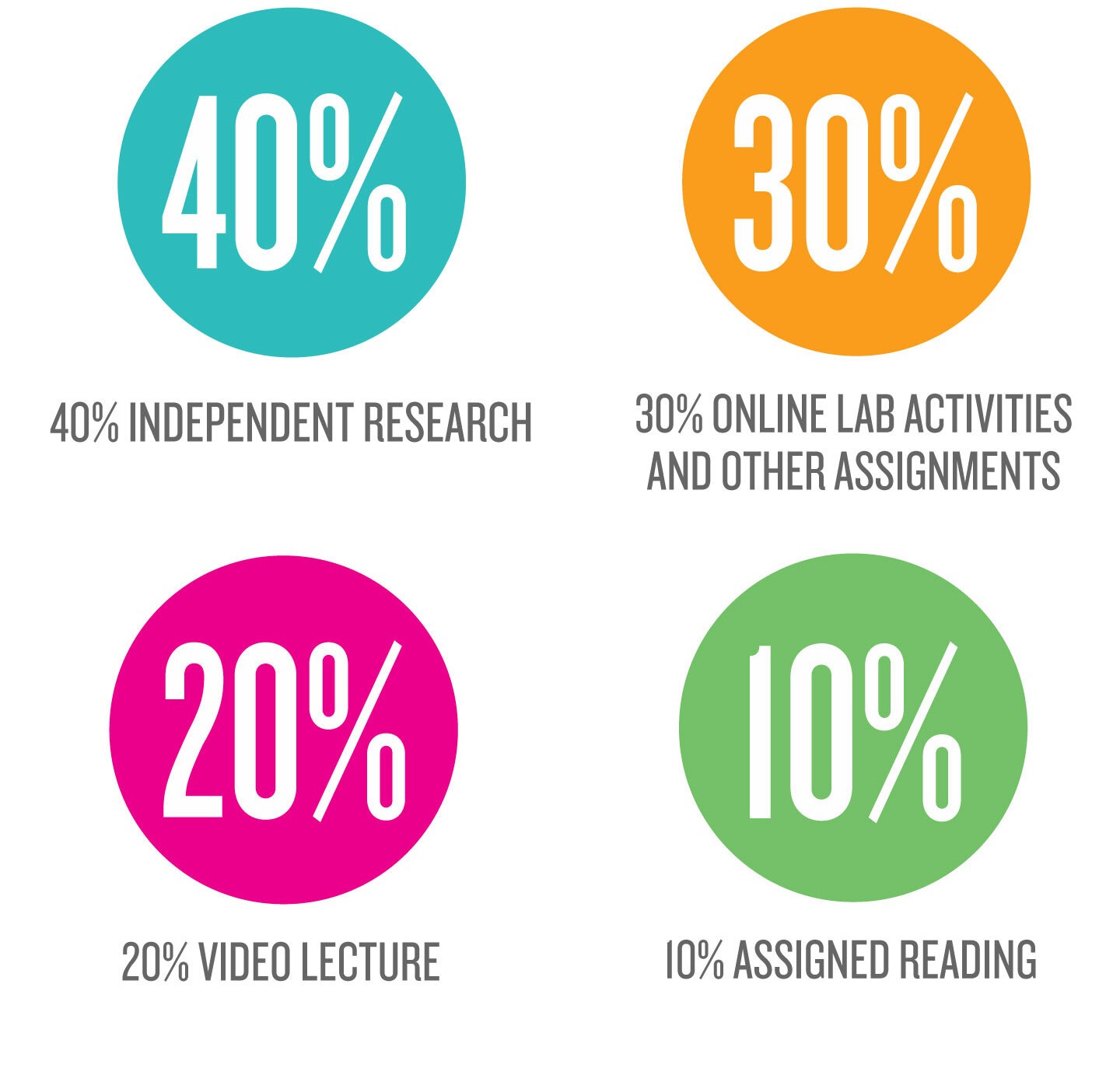
How can botany students study botany without access to a lab? Roosevelt University professor Emily Dangremond had planned in-depth independent projects and trips to the Chicago Botanic Garden for her spring classes. When the coronavirus upended her plans, she found some surprising benefits to remote learning — even for her lab students.
Dangremond and her colleagues in the biology program had to swiftly reconfigure their classes for a remote format. Instead of rewriting the entire curriculum, they focused on what was most important for each of their classes and using class time efficiently.
“When we first went online, I was worried about lecturing over Zoom,” said Dangremond, an assistant professor of biology. “I thought it would be really boring for students to sit in front of a computer and listen to a lecture.”
Dangremond limited Zoom lectures to one hour to compensate for the work her students were doing outside of class, and began engaging with students in new ways. To include students who kept their cameras off during course sessions, she asked questions over Zoom chat. The new discussion format opened up class conversations to students who weren’t comfortable raising their hands in person.
A WEEK IN EMILY DANGREMOND’S CLASS
- Virtual labs in Labster
- Remote student research presentations
- Zoom Breakout discussions on Michael Pollan’s The Botany of Desire
- Virtual office hours
Roosevelt senior Museerah Zahid rarely spoke up in class before quarantine. “I usually don’t talk in discussions because I’m a very shy person,” said Zahid. “Working remotely made me interact with my classmates and professor more.”
For students working extra hours at grocery stores or caring for family members, remote learning created new opportunities to engage with the material. Students could join classes live or watch recorded lessons on their own schedules. Others, like Zahid, gained back the hours spent commuting to class each week.
“I have tried to be supportive by extending deadlines and asking about their lives,” Dangremond said. “What is life like now, or what will it look like over the summer?”
A major portion of Dangremond’s class was the independent research project. Before the stay-at-home order went into effect, students scrambled to collect their research data from Roosevelt’s biology labs. Students working with online data could continue their projects uninterrupted; others had to use the data they already had without further research. All of Dangremond’s students still had the full experience of planning a research project, including developing methods to test their hypotheses.
Dangremond devised creative ways for students to practice the same analytical skills they flexed in the classroom. In Organismic Biology, her students learned to identify organisms from videos and photos, including one in-depth lesson on plant nutrient deficiencies.
“We always have a fun time breaking into discussion rooms to talk about the book we were reading,” said Zahid. “We did research presentations for our last class, so it was fun to see what all the classmates did their research on, and how we were able to turn around our research projects even with the pandemic.”
In preparation for the fall, Roosevelt University is planning the safest ways to return to campus for in-person classes. In the meantime, professors like Dangremond have mastered new strategies for online teaching with more time to prepare for classes that will be continue to be offered virtually. She and her colleagues have discussed sending lab kits home with students so they can work with real specimens, or converting field trips to activities that students could do while social distancing.
“Although I don’t think most professors or students wanted to move online, we have been able to adapt pretty well,” Dangremond said. “I feel like my students and I still have fun interacting and learning about the wonderful world of life, also known as biology!”
Zahid will graduate from Roosevelt this spring. The biology student looks forward to returning to campus next year to walk across the Auditorium Theatre stage at Commencement. To students who struggled with remote classes, Zahid advises, “Just take it slowly and it will eventually become easier. Everyone understands that this is a tough time, so not everyone has to be on the same pace.”
